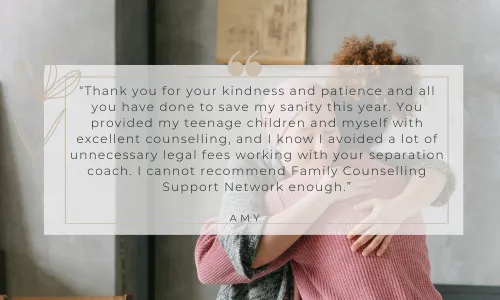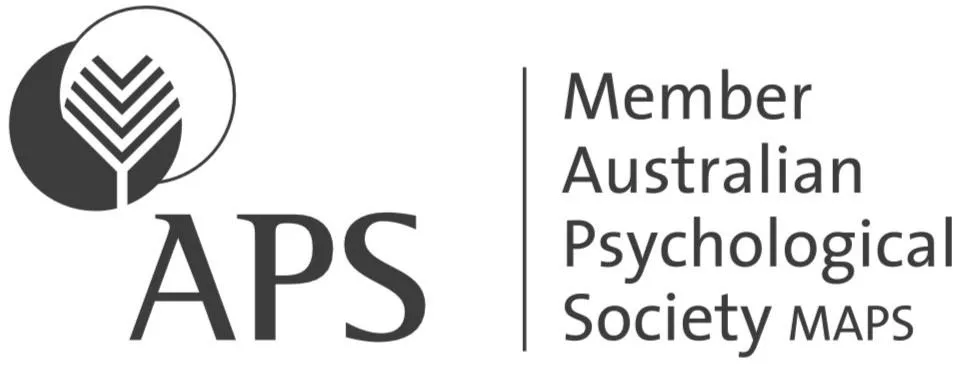BLOGS AND RESOURCES
We are here to help you on your journey. For more regular information, advice and details of upcoming events, please sign up to receive our free monthly newsletter.

Tackling Stress Head On
Building Your Resilience to help you cope through the tough times
Everyone goes through tough times in life. There are some stressful situations we can avoid completely and others which are an inevitable part of life – work, children, relationships, money, health challenges. Without the right tools, stress can cause wear and tear on the body and brain and can increase the risk of many health conditions including heart disease, high blood pressure, depression, and anxiety.
How we deal with stress can be very personal, and not every coping strategy suits each person, but it is about learning some strategies that work for you, being self-aware that the stress levels are climbing, and then employing the strategies in a timely way (before too overwhelmed) to reduce the impact of that stress, that will help you avoid the serious impacts on wellness.
Resilience is defined as the extent to which we can bounce back from adverse events, cope with stress, or succeed in the face of adversity. It is not something you are born with. It is more a result of how family, community, and cultural practices—interact. It boosts wellness and protects you from risks to your well-being.
Resilience isn’t just about eliminating stress but more about really leaning in to your own strengths, and finding those protective measures in your life to help cope with the often inevitable stress and to support your own well-being.
Research has indicated that the essential tool box items to help deal with stress and build resilience are:
· Exercise – doesn’t matter how.
· Get some sunshine and play upbeat music.
· Feed your body with healthy options and reducing reliance on alcohol, smoking and/or drugs.
· Express your emotions rather than bottling them up.
· Change your mindset and try to look at a stressful situation as a growth opportunity instead of thinking of it as a threat.
· Say no more often and focus on you - Meeting your own self-care needs rather than aways being the empath and giver.
· Try to find even one small thing every day to enjoy and take time out for YOU! DO NOT feel guilty about that – you are of no use to anyone else you care for if you have exhausted your own emotional energy! Adults who take time for themselves can better help nurture resilience in children.
· Find your people, community and resources - resilience doesn’t happen in a vacuum. Find your support network. At work, school, church, exercise class, in your cultural network? Who can help build your inner strengths and strategies to deal with life challenges?
Write down a few times you were highly stressed before and reflect on:
- what has previously helped you when you were stressed?
- how did you dealt with it?
- who could you count on?
”In 2011 my daughter was incredibly ill and we did not know if she would be brain damaged and/or able to walk again. I was in the middle of a large work project and renovations at the time and had two small children. I don’t recall ever feeling as stressed. I had never done much long distance running before, but I got an awesome playlist together, bought some running shoes and started slowly jogging/shuffling my way around the suburb. The music, sun, greetings from neighbours and the exercise were my saviour that year. I still use these strategies today to get through my toughest times.” Susan
Client Testimonials



Questions about our
Services?
Medicare rebate or private medical insurance claim for psychological services?
Most clients prefer to book directly with with our counsellors. No referral is required to access this counselling service.
During the first session, you can discuss the benefits of seeking a Mental Health Care Plan from your GP should you wish to pursue this path moving forward and you are booking with a registered psychologist. If you require a Mental Health Care Plan (MHCP) you will need to make a long appointment with your GP and they will make an assessment about whether you are eligible.
All of our registered psychologists are registered with Medicare and you will need a referral from a GP if you wish to claim Medicare rebates. Under the Better Access program you can receive a partial rebate for up to 10 individual sessions in a calendar year.
All our psychologists are registered with private health insurance providers in Australia. If you have private health insurance, you may be eligible to claim rebates for psychological sessions. The level of cover and any applicable waiting periods vary between providers and depends on your extras cover policy.
To find out if you are eligible and/or how much funding you are entitled to claim for psychological sessions, please contact your private health insurance.
Where applicable, some of our psychologists also see clients who are self-managed or plan-managed through NDIS at the current rate for NDIS.
Cancellation or missed sessions policy
Given the nature of our support services, last minute cancellations are costly, and it means that other clients may miss out on receiving the required support. For cancellations within 48 hours of the scheduled appointment there is a $65 part fee payment. For less than 24 hours cancellation notice or a non-show, the full session fee will need to be charged. These fees are refunded however if the session can be filled at the last minute.
How are your counselling and coaching sessions held?
We know our clients are time poor. For your convenience, all our counselling or coaching sessions are now available online via Zoom.
You can book your appointment online via this website.
Zoom allows us to connect with you via video and audio. It just requires you to click on a link to join. You can sign up to Zoom to create a FREE account and download the Zoom Client for Meetings. Zoom does require internet connections.
After you book you will be sent a reminder about the booking and emailed a link to connect at the booked time. You are also likely to be sent a client information form to complete prior to your initial consultation to enable our Counsellors and Coaches to be better prepared for your first meeting.
If you are unable to make any of the dates available, please email us to see if we can accommodate an alternate time for you: [email protected]
If you live in Brisbane or the Gold Coast, Queensland, we are available for face to face consultations. Please email us at [email protected] if you would like to arrange an in person appointment.

Webinars - how they are received, transcripts and worksheets
Lorem ipsum dolor sit amet, consectetur adipisicing elit. Autem dolore, alias, numquam enim ab voluptate id quam harum ducimus cupiditate similique quisquam et deserunt, recusandae.

Catch up on our latest blogs

Tackling Stress Head On
Building Your Resilience to help you cope through the tough times
Everyone goes through tough times in life. There are some stressful situations we can avoid completely and others which are an inevitable part of life – work, children, relationships, money, health challenges. Without the right tools, stress can cause wear and tear on the body and brain and can increase the risk of many health conditions including heart disease, high blood pressure, depression, and anxiety.
How we deal with stress can be very personal, and not every coping strategy suits each person, but it is about learning some strategies that work for you, being self-aware that the stress levels are climbing, and then employing the strategies in a timely way (before too overwhelmed) to reduce the impact of that stress, that will help you avoid the serious impacts on wellness.
Resilience is defined as the extent to which we can bounce back from adverse events, cope with stress, or succeed in the face of adversity. It is not something you are born with. It is more a result of how family, community, and cultural practices—interact. It boosts wellness and protects you from risks to your well-being.
Resilience isn’t just about eliminating stress but more about really leaning in to your own strengths, and finding those protective measures in your life to help cope with the often inevitable stress and to support your own well-being.
Research has indicated that the essential tool box items to help deal with stress and build resilience are:
· Exercise – doesn’t matter how.
· Get some sunshine and play upbeat music.
· Feed your body with healthy options and reducing reliance on alcohol, smoking and/or drugs.
· Express your emotions rather than bottling them up.
· Change your mindset and try to look at a stressful situation as a growth opportunity instead of thinking of it as a threat.
· Say no more often and focus on you - Meeting your own self-care needs rather than aways being the empath and giver.
· Try to find even one small thing every day to enjoy and take time out for YOU! DO NOT feel guilty about that – you are of no use to anyone else you care for if you have exhausted your own emotional energy! Adults who take time for themselves can better help nurture resilience in children.
· Find your people, community and resources - resilience doesn’t happen in a vacuum. Find your support network. At work, school, church, exercise class, in your cultural network? Who can help build your inner strengths and strategies to deal with life challenges?
Write down a few times you were highly stressed before and reflect on:
- what has previously helped you when you were stressed?
- how did you dealt with it?
- who could you count on?
”In 2011 my daughter was incredibly ill and we did not know if she would be brain damaged and/or able to walk again. I was in the middle of a large work project and renovations at the time and had two small children. I don’t recall ever feeling as stressed. I had never done much long distance running before, but I got an awesome playlist together, bought some running shoes and started slowly jogging/shuffling my way around the suburb. The music, sun, greetings from neighbours and the exercise were my saviour that year. I still use these strategies today to get through my toughest times.” Susan



We are committed to protecting your personal information and respecting your privacy. This website uses cookies to analyze website traffic and optimise your website experience. By accepting our use of cookies, your data will be aggregated with all other user data.
DISCLAIMER: The material contained on this website is for general educational and information purposes only and is not a substitute for professional legal, financial, medical or psychological advice or care. While every care has been taken in the information provided, no legal responsibility or liability is accepted, warranted or implied by the authors or Family Counselling Support Network and any liability is hereby expressly disclaimed. For specific advice please contact us at [email protected]. All information contained on the website remains the intellectual property of Family Counselling Support Network and is for your personal educational use only. The information must not be reproduced or distributed without the express permission of Family Counselling Support Network.
We are committed to providing an inclusive and accessible environment where people and communities of all identities and backgrounds are accepted, safe and celebrated.
Privacy Policy | Terms and Conditions
